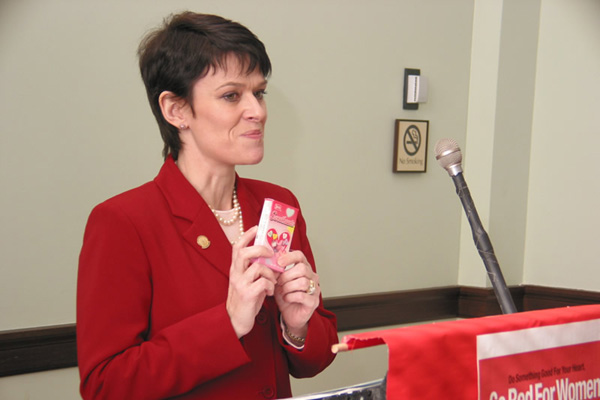
TRENTON – A bill sponsored by Senator Ellen Karcher which will ensure adequate parking for handicapped drivers by clarifying that penalties for illegally parking in handicapped parking spots are still in place, whether penalties are posted or not, was signed by Governor Corzine on Monday.
“Handicapped parking is a matter of convenience and safety for disabled individuals who need to perform day-to-day chores, like grocery shopping and doctor’s visits,” said Senator Karcher, D-Monmouth and Mercer. “I think in today’s culture, the handicapped parking sign is almost universally understood, and, whether penalties are posted or not, drivers should understand that they cannot abuse handicapped parking. This new law clarifies that penalties will be imposed whenever a driver illegally uses handicapped parking.”
The bill, S-1810, will amend current law to ensure that the penalties associated with handicapped parking laws be imposed, even when those penalties are not posted or improperly posted on a handicapped parking sign. Under current law, failure to post the penalties for parking in a handicapped spot, even when the handicapped parking designation is clearly defined, could result in a parking ticket being thrown out. Senator Karcher noted that in most other criminal acts or motor vehicle offenses, knowledge of the penalties is not required when proving someone broke the law.
“You do not need to have a law degree, or memorize traffic code, to know the difference between right and wrong,” said Senator Karcher. “When drivers illegally park in handicapped spaces, they’re inconveniencing, and potentially endangering, disabled individuals who need the closer spots as a matter of safety. Whether drivers know the legal consequences or not, they should recognize that handicapped parking spots must be reserved for those people who need them the most.”
Senator Karcher noted, just in case there was any confusion, that illegally parking in a handicapped parking space, under current law, carries a fine of $250 for a first offense, and a fine of at least $250 and up to 90 days of community service for second and subsequent offenses.
The bill was unanimously approved by the Senate in June of 2006, and was unanimously approved by the Assembly this past June.

